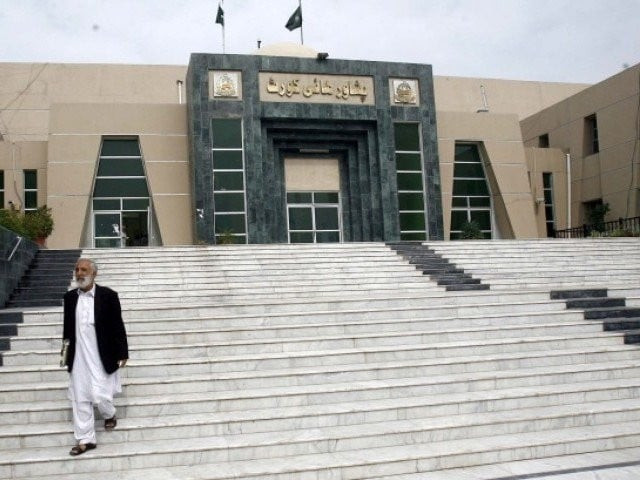A town not big enough for two: PHC orders larger bench to hear case on K-P EC Act’s legality
Counsels argue no place for Ehtesab law alongside NAB ordinance

Peshawar High Court. PHOTO: PPI
A division bench of Chief Justice Mazhar Alam Miankhel and Justice Younis Taheem heard several petitions that challenged vires of the act and the appointment of the EC’s director general.
A panel of lawyers representing various petitioners appealed to the bench to form a larger bench as this was a constitutional matter and required more insight. The chief justice observed the current bench faced no problem in understanding the issue. The panel replied a larger bench was requested for the sake of collective wisdom. Accepting the request, the chief justice asked that the matter be referred to a larger bench which would be formed soon.
Earlier, Qazi Jawad, representing former minister Liaquat Shabab, informed the bench any judgment in this case would resolve everyone’s problems. Former taxman Shabab was arrested by the EC in May.
Deconstruction
Lawyer Shamail Ahmad Butt, while arguing before the court for one of the petitioners, said there were four vires (powers) including those of the original act, amended act and quo warranto (appointment of the director general).
He asked the court to allow the act to be argued in three categories; the first being in light of articles 141, 142 and 143 of the Constitution of Pakistan, the second being the doctrine of field of occupation and finally violation of fundamental rights under articles 10A, 12 and 25 of the Constitution.
Ahmad Butt said Article 141 of the Constitution empowers Parliament to create legislation for the whole country. He added Article 143 states any law or act introduced by Parliament would prevail over the one created by a provincial assembly if the two were found conflicting.
He said the Parliament passed the National Accountability Ordinance 1999 for the whole country and questioned the need to introduce the K-P Ehtesab Commission Act 2015.
“If a law passed by Parliament exists, legislation created by the provincial assembly—no matter how competent—cannot be implemented,” Ahmad Butt argued. He said it would mean the area was already occupied and no provincial assembly could implement laws of a similar nature.
Reading out the definition of corruption or corrupt practices defined in the NAB ordinance, Ahmad Butt stated each and every aspect has been covered by it. He said the bench would see the KPEC Act 2015 was a verbatim copy of the NAB ordinance if it compared the two.
Published in The Express Tribune, November 11th, 2015.













COMMENTS
Comments are moderated and generally will be posted if they are on-topic and not abusive.
For more information, please see our Comments FAQ